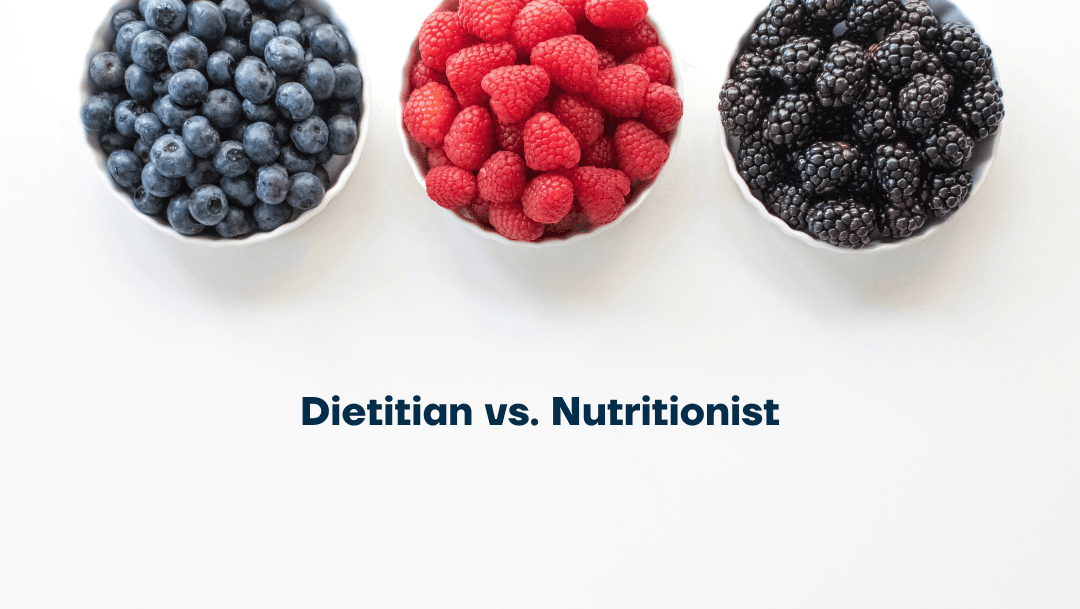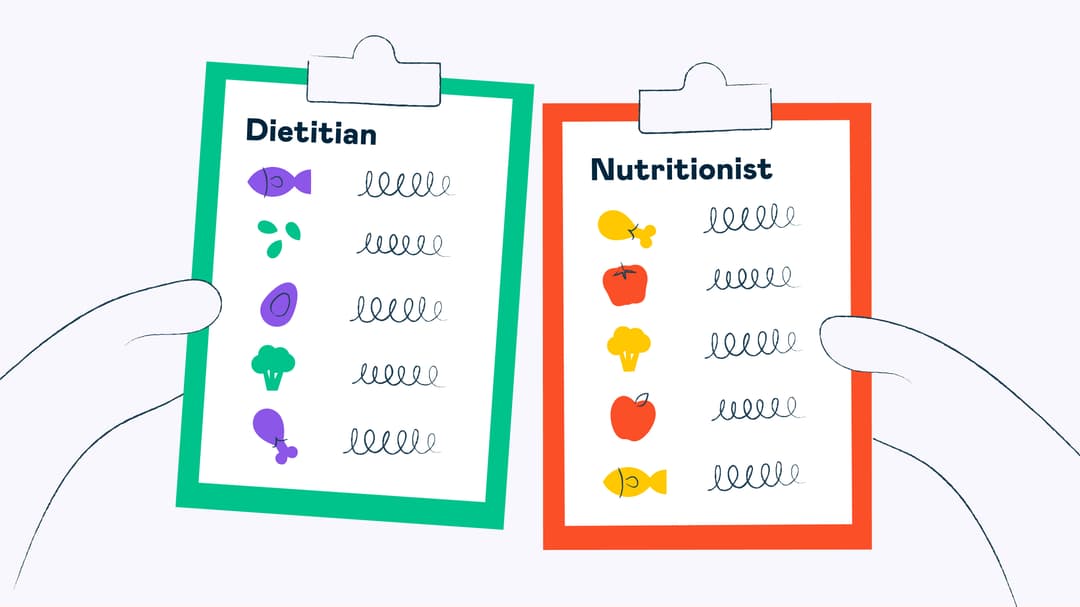All Categories
Featured
Table of Contents
-1
And if you 'd like to get into the food and nourishment industry, it's worth understanding what those differences are now. Dietitians aid their customers browse the connection between food and wellness.
-1Nutritional experts normally work in group settings, enlightening bigger areas and organisations. They can additionally work in other areas such as: Evaluation plans and guidelines around foods, consisting of high quality checks.
-1The major distinction to understand is that the nourishment career isn't managed in Australia. This means that practically, anybody can call themselves a 'nutritionist', while you must have an authorized dietetics qualification to be a dietitian. To shield appropriately practicing nutritionists, the Nourishment Culture of Australia has a Register of Nutritionists.
-1The typical income for a nutritionist is $75,000 per year. This can range from $60,000 to $90,000, depending on the function.
Registered Holistic Nutritionist – Armadale
-1Eager to deal with customers on their nutritional goals quicker instead of later? Study a degree in nourishment. Wish to take your experience even better, and help deal with diet-related medical conditions? After that a profession as a dietitian may be ideal for you. In either work, you will play a crucial duty aiding individuals make the very best choices for their diet regimen and wellness.

-1
Dietitian and nutritional expert: both of these professions work around diet plan and food, however are they the exact same? While they overlap somehow, these jobs are actually rather various. So what specifically is the distinction in between a dietitian and a nutritionist? The brief solution is that a dietitian functions in a controlled area, and need to have finished a bachelor's degree.
-1Regardless of the differences in qualifications between a dietitian versus nutritional expert, the salaries are rather comparable. While there is a higher need for certified dietitians, nutritional experts tend to have higher job complete satisfaction - Postpartum Dietitian.
Personal Nutritionist – Mount Nasura 6112
-1You can function in a substantial series of markets for a wide array of organisations or perhaps for on your own. If you're still not exactly sure about whether to become a dietitian versus a nutritional expert, the complying with may aid you determine. As a dietitian, you might take pleasure in an occupation as a: a registered dietitian or dietitian nutritionist is a person who operates in the general area of dietetics, recommending diets, supplementation and nutritional help to sustain healthy and balanced lifestyles and condition monitoring.
-1To come to be nationally accredited, dietiticians should join the Accredited Practising Dietitian (APD) program and come to be a participant of Dietitians Australia. Whether dietitian or nutritional expert is a much better profession for you far better relies on your personal choices. It's vital to keep in mind that all dietitians are nutritional experts, but not all nutritional experts are dietitians.
Private Dietitian
-1Both professions are included with helping people achieve their health objectives through food education, however there are numerous elements that set them apart. If you have an interest in encouraging individuals on nutritional and nutritional issues, you may have what it takes to end up being a nutritionist or dietician. The area of food scientific research is extremely broad, providing a series of career opportunities to qualified professionals.
-1Nutritional experts specialise in providing evidence-based suggestions and solutions associated with nourishment. Through regular consultations, nutritional experts help customers recognize the link between diet plan and health so they can make more informed choices around food and live a much healthier lifestyle. Nutritionists typically function with clients on a private basis, although they additionally function with groups with a particular objective (e.g.
Functional Nutritionist ( Armadale)
-1Also though you don't have to examine to end up being a nutritionist, doing so could improve your opportunities of advancing your profession in this field. Training courses that have a specialized in Nutrition, like the HLT43015 Certification IV in Allied Wellness Support (Nourishment and Dietetics Expertise), are developed to create your understanding of the partnership between food and health, enabling you to provide experienced recommendations on nourishment.
Find A Nutritionist
-1Jul 09, 2018 Australia presently does not control the expert titles 'nutritionist' or 'dietitian', leaving a wide market for false information if you do not do your own research study. The media additionally often tends to make use of both terms mutually, making differences in between certifications increasingly challenging. Read on as we break down the differences between these occupations, their relevant qualifications, what they can do for you and what to look for when trying to find a specialist to aid you.
-1You have decided that you need to improve your health and wellness and that working on your diet plan is the finest place to begin. You have read about the advantages of functioning with a dietitian or a nutritionist, but you aren't certain which you need or just how to pick who to work with.

-1
However, the primary differences are the kind of research that has actually been finished by each expert, and the guidelines connected to each title. A dietitian has fulfilled the nationwide and global criteria for specialist regulations. Dietitians are the only nourishment professionals to be controlled by regulation, and they are regulated by a moral code (a lot like physicians are) to make certain that they always function to the highest criterion.
-1On the various other hand, somebody who has the title of a nutritionist is not protected by regulation in numerous nations, and it is not a regulated term. All dietitians are taken into consideration to be nutritionists; nonetheless, nutritionists without a dietetics certification can not handle the been experts duty of a dietitian. For a person to come to be a registered dietitian, they need to have actually finished a 4 year college level in Nutrition and Dietetics, or a 3-year science level adhered to by a Masters Degree in Nutrition.
Registered Nutritionist

-1
Since every one of this info has been supplied, we can reroute our emphasis to the opposing end of this diet professional vs nutritional expert debate. On a holistic level when reviewing 'what is the distinction between a diet professional and a nutritionist?', we can claim the duties don't vary widely. Dietitians will still arrange food and nourishment plans, in order to promote a healthy and balanced way of life amongst their clients.
-1Dieticians can additionally work in academic establishments such as Universities. Unlike this, the largest difference between a nutritionist and dietitians in the UK is that nutritionists to operate in medical markets. Dietitian. Rather, they can function within the health and wellness sector in roles such as nutritional consultants in food distribution firms, as well as an individual fitness instructor that provides recommendations and recommendations to their clients
-1This brings us on going over the following difference in between a dietician and nutritionist in the UK. You may have read this heading and examined 'is there a difference between a dietician and a nutritional experts' clients?'. It's only all-natural to presume that anyone checking out either specialist will be doing so for similar reasons, but this is not the situation.
Latest Posts
Eating Disorders - Perth
Eating Disorder Management
Tips To Find The Right Dietitian To Work With